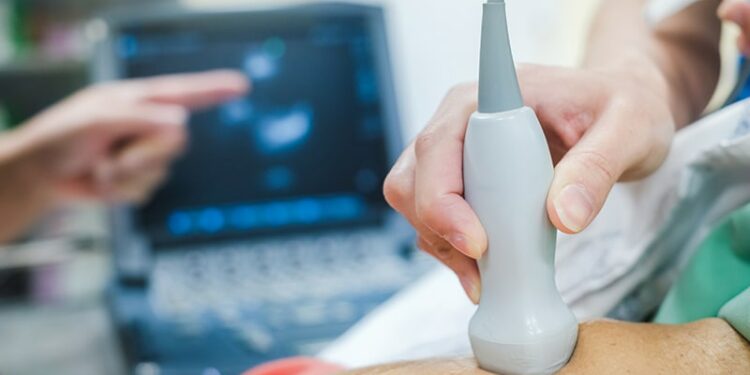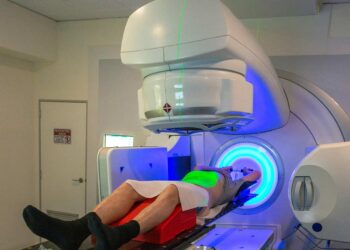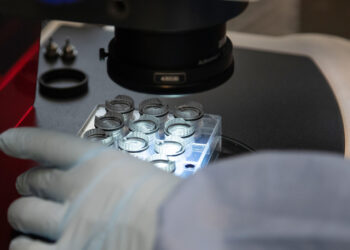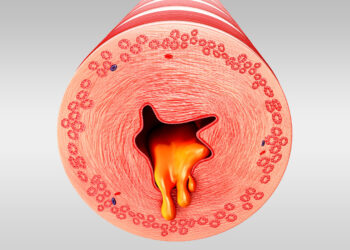New research highlights the promise of artificial intelligence (AI) for opportunistic screening of chronic liver disease (CLD) through routine echocardiography.
An AI algorithm called EchoNet-Liver demonstrated strong performance for detecting cirrhosis and steatotic liver disease (SLD) from routinely acquired transthoracic echocardiography studies containing subcostal images of the liver, the developers reported in NEJM AI.
“We hope that this algorithm enables physicians to opportunistically screen for chronic liver disease to identify asymptomatic and undiagnosed patients, thus enabling us to treat comorbidities relevant to the patient’s cardiovascular and noncardiovascular health,” Alan C. Kwan, MD, assistant professor, Department of Cardiology, Smidt Heart Institute at Cedars-Sinai, Los Angeles, California, told Medscape Medical News.
Harnessing Echo to Reveal Liver Trouble
CLD affects over 1.5 billion people globally, with many cases remaining undiagnosed due to the asymptomatic nature of early disease and a lack of routine screening. Traditional diagnostic methods such as liver function tests, ultrasonography, and MRI are often limited by cost, availability, and patient access.
Echocardiography is a commonly performed imaging study that incidentally captures images of the liver but is not utilized for liver disease assessment.
EchoNet-Liver is an AI algorithm that can identify high-quality subcostal images from full echocardiography studies and detect the presence of cirrhosis and SLD.
Kwan and colleagues trained it using nearly 1.6 million echocardiogram videos from 66,922 studies and 24,276 adult patients at Cedars-Sinai Medical Center (CSMC). The model predictions were compared with diagnoses from clinical evaluations of paired abdominal ultrasound or MRI studies. External validation studies were conducted using similar data from Stanford Health Care.
In the “held-out” CSMC ultrasound dataset, EchoNet-Liver detected cirrhosis with an area under the receiver operating characteristic curve (AUROC) of 0.837 (95% CI, 0.828-0.848) and SLD with an AUROC of 0.799 (95% CI, 0.788-0.811).
The algorithm showed a sensitivity of 69.6% and a specificity of 84.6% for detecting cirrhosis, and a sensitivity of 74.1% and a specificity of 72.0% for detecting SLD.
In the Stanford Health Care external-validation test ultrasound cohort, the model detected cirrhosis with an AUROC of 0.830 (95% CI, 0.799-0.859) and SLD with an AUROC of 0.769 (95% CI, 0.733-0.813), with sensitivity and specificity of 80.0% and 70.9%, respectively, for cirrhosis and 66.7% and 78.0%, respectively, for SLD.
In the CSMC MRI-paired cohort, EchoNet-Liver detected cirrhosis with an AUROC of 0.704 (95% CI, 0.699-0.708) and SLD with an AUROC of 0.725 (95% CI, 0.707-0.762).
Identifying Subclinical Liver Disease to Improve Outcomes
“Across diverse populations and disease definitions, deep-learning-enhanced echocardiography enabled high-throughput, automated detection of CLD, which could enable opportunistic screening for asymptomatic liver disease,” the authors wrote.
“By improving the diagnosis of subclinical CLD, we may be able to limit or reverse disease progression and improve care by triaging patients toward appropriate clinical and diagnostic management,” they said.
By way of limitations, the researchers noted that the tool was developed using a cohort of patients who had both abdominal ultrasound and echocardiography within 30 days, and thus probably had a higher prevalence of liver disease compared with the general population receiving echocardiography. The true clinical utility of EchoNet-Liver will depend on whether its application to a general echocardiography population can efficiently detect undiagnosed CLD, they cautioned.
“While we developed this algorithm based on clinical data, the application within the clinic would typically require FDA approval, which we have not yet applied for,” Kwan told Medscape Medical News.
“We plan to prospectively validate this algorithm at multiple sites to ensure that application of this algorithm improves patient care without causing excess diagnostic testing, thus providing value to patients and the healthcare system as a whole,” Kwan said.
Funding was provided in part by KAKENHI (Japan Society for the Promotion of Science). Kwan reported receiving consulting fees from InVision.
Source link : https://www.medscape.com/viewarticle/ai-enhanced-echocardiography-game-changer-opportunistic-2025a10006p5?src=rss
Author :
Publish date : 2025-03-20 13:26:00
Copyright for syndicated content belongs to the linked Source.














